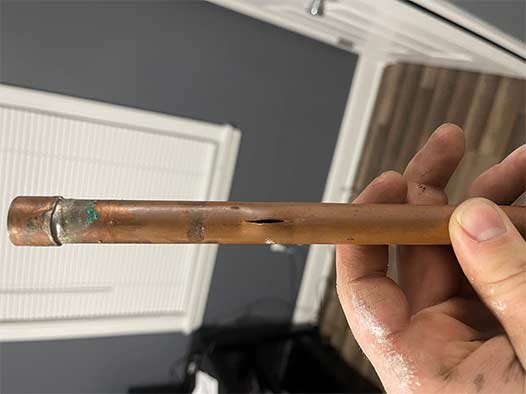Key Guidelines to Follow When a Pipe Bursts in Your Home
Dealing with a burst pipe in your home can be a stressful and overwhelming experience. Whether it’s due to freezing temperatures, old and worn-out plumbing, or excessive water pressure, a burst pipe can lead to significant damage if not addressed promptly. Knowing what to do in such a situation is crucial to minimize the potential risks and ensure a quick resolution. Here we have compiled a set of key guidelines to follow when a pipe bursts in your home.
Shut Off the Main Water Supply
The first and most crucial step when facing a burst pipe is to immediately shut off the main water supply. This action will prevent further water flow and reduce the severity of the damage. Locate the main shut-off valve, which is typically located near the water meter or where the main water line enters your home. Familiarize yourself with the valve’s location beforehand, so you can act swiftly in case of an emergency.
Open Faucets and Drains
After shutting off the main water supply, open all faucets and drains in your home. This will help alleviate the pressure build-up and drain any remaining water from the system. By opening multiple faucets, you allow water to escape freely, reducing the risk of further leaks and damage. Additionally, opening the drains will help in draining any standing water that may have accumulated.
Turn Off Electricity
Water and electricity are a dangerous combination. To avoid electrocution or electrical fires, turn off the electricity to the affected area or the entire house, if necessary. Locate the main electrical panel and switch off the circuit breaker connected to the affected area. If you are unsure which circuit controls the area, it is best to turn off the main circuit breaker to ensure safety.
Assess the Damage
Once you have taken the necessary safety precautions, assess the extent of the damage caused by the burst pipe. Look for visible signs of water, such as water stains on walls or ceilings, wet and soggy carpets, or pooled water in affected areas. If necessary, remove any furniture or belongings that may be at risk of damage. Take pictures or videos of the damage for insurance purposes, as this documentation will be helpful during the claims process.
Contact an Emergency Plumber
While it may be tempting to try and fix the burst pipe yourself, it is crucial to seek the expertise of an emergency plumber in the area. Plumbing systems can be complex, and attempting to repair a burst pipe without the necessary skills and tools can lead to further damage or even personal injury. Contact a licensed and experienced plumber who can assess the situation, provide a proper diagnosis, and carry out the necessary repairs to restore your plumbing system.
Clean up and Dry the Affected Area
Once the burst pipe has been repaired, it is essential to clean up and dry the affected area thoroughly. Use mops, towels, and wet/dry vacuums to remove any standing water. Set up fans and dehumidifiers to promote air circulation and speed up the drying process. Mold and mildew can start growing within 24-48 hours, so it is crucial to dry the area as soon as possible to prevent further damage and health hazards.
Monitor for Potential Issues
After the repairs and cleanup, it is important to monitor the affected area and the rest of your plumbing system for any potential issues. Keep an eye out for recurring leaks, unusual noises, or changes in water pressure. If you notice any signs of continued problems, contact your local plumber immediately to address the issue before it escalates.
Take Preventive Measures
To prevent future bursts or leaks, consider taking preventive measures to ensure the longevity and reliability of your plumbing system. Some key preventive measures include:
- Insulating exposed pipes: Insulate pipes in unheated areas, such as basements, attics, and crawl spaces, to protect them from freezing temperatures.
- Maintaining proper water pressure: Excessive water pressure can put strain on pipes, leading to bursts. Install a pressure regulator to maintain a safe and optimal water pressure.
- Regular plumbing inspections: Schedule regular inspections by a professional plumber to identify and address any potential issues before they become major problems.
- Replacing old pipes: If you have old or deteriorating pipes, consider having your home repiped to avoid unexpected bursts or leaks.
Dealing with a burst pipe can be an unfortunate and stressful situation, but by following these key guidelines, you can minimize the damage and ensure a prompt resolution. Remember to prioritize your safety by shutting off the main water supply, electricity, and seeking professional help. Act quickly to assess the damage, clean up, and dry the affected area to prevent further issues such as mold growth. Finally, take preventive measures to avoid future pipe bursts and maintain a reliable plumbing system in your home.
